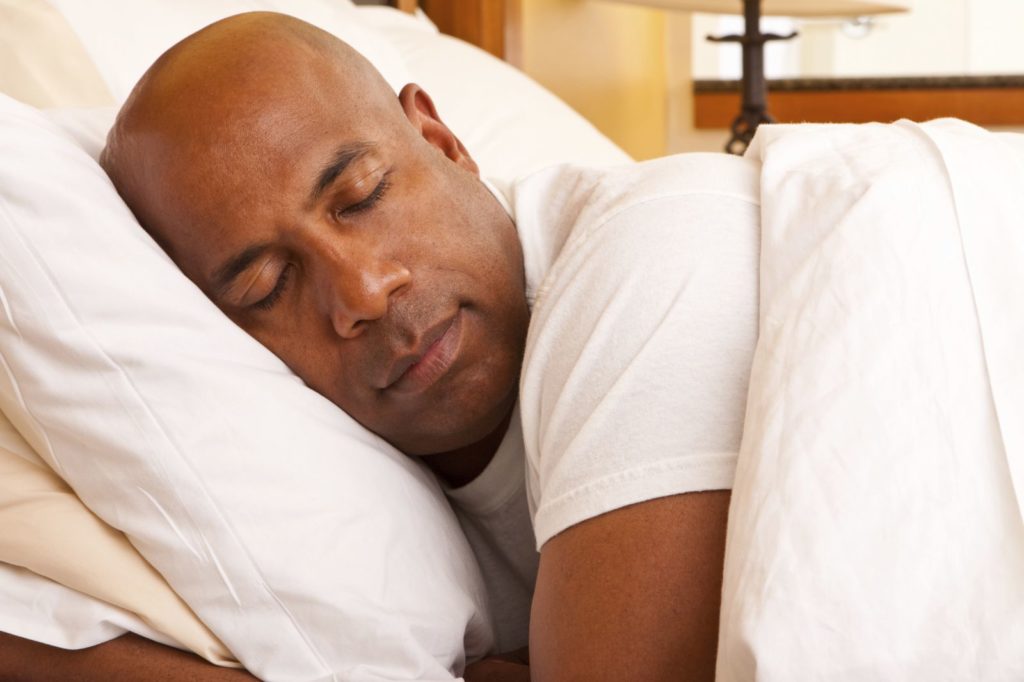by Diana Khoury
Up to 70 million Americans suffer from sleep disorders every year.1 Sleep problems range from mild to chronic and include insomnia, sleep apnea, restless leg syndrome and other, less common conditions. The Centers for Disease Control and Prevention (CDC) reminds us that “sufficient sleep is not a luxury—it is a necessity—and should be thought of as a vital sign of good health.”2
Causes
Changes in American society over the last several decades have contributed to an increase in sleep irregularities. Leading factors include higher stress levels than in past generations, busy 24/7 lifestyles, obesity, and overstimulation from increased access to TV, Internet, and personal electronics. As a society we are getting less and poorer quality sleep than ever before.

Effects
Sleep loss has many negative effects, including low energy level and decreased ability to focus. Doctors say lack of sleep erodes memory and concentration, disturbs neurological function, inhibits tissue and muscle restoration and slackens reflexes.
According to the CDC, “Insufficient sleep is associated with a number of chronic diseases and conditions—such as diabetes, cardiovascular disease, obesity, and depression—which threaten our nation’s health. Notably, insufficient sleep is associated with the onset of these diseases and also poses important implications for their management and outcome.”2
Treatment
In response to the steep increase in sleep disorders, the number of accredited sleep clinics in the U.S. has more than tripled since 1995. At the same time, pharmaceutical companies have targeted sleeplessness as an attractive growth market for the coming years. Sleep clinics may be able to provide relief, but each visit to an accredited clinic can cost thousands of dollars. Drugs may address the symptoms of common sleep issues, but they can be addictive, have side effects, and do not address the root cause of the problem.
Acupuncture, as an alternative treatment for sleep problems, has been shown to outperform western medication due to its lack of side effects. In 2009, a clinical review of 46 research studies on the effects of acupuncture on insomnia concluded that acupuncture improves sleep duration and quality.4 One controlled study of anxiety sufferers and their sleep patterns demonstrated that acupuncture physiologically increased melatonin production, enabling participants to fall asleep faster and wake less during the night. Participants also reported reduced anxiety levels due to increased relaxation.5
In a study conducted in Brazil with sleep apnea patients, acupuncture measurably strengthened and reduced inflammation in the tongue muscle, decreasing incidences of the tongue falling back during sleep, blocking the airway.6 As a result, participants’ apnea symptoms were reduced and overall sleep quality improved.
To address sleep disorders appropriately, a qualified acupuncturist will first conduct a thorough intake and evaluation of your symptoms. This will allow the practitioner to create a targeted acupuncture treatment plan for maximum results: better sleep, improved health, and increased quality of life.
This is an original article from Dreamclinic, Inc. Dreamclinic is a Health and Wellness company committed to sharing information about commonly experienced health conditions and how they may be impacted through the use of bodywork and other natural approaches. Dreamclinic offers massage, acupuncture, and Reiki sessions at its Greenlake and Queen Anne clinics, as well as onsite massage at workplaces around Puget Sound. Contact us to learn more about how Dreamclinic can help you, your family or your workplace experience greater health.
References:
1. http://www.ncbi.nlm.nih.gov/books/NBK19961/
2. http://www.cdc.gov/sleep/
3. http://seattletimes.com/html/localnews/2002925590_sleepless12e.html
4. http://www.ncbi.nlm.nih.gov/pmc/articles/PMC3156618/
5. http://www.ncbi.nlm.nih.gov/pubmed/14990755
6. http://www.sleepapnea.org/treat/treatment-options/acupuncture.html
Image: www.centerforspinaldisorders.com
Other Resources:
http://seattletimes.com/html/nationworld/2002911242_sleep05.html
